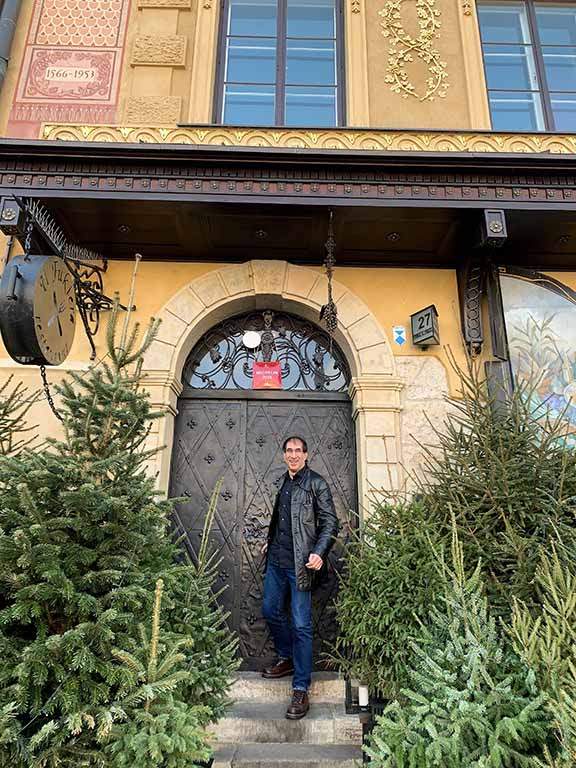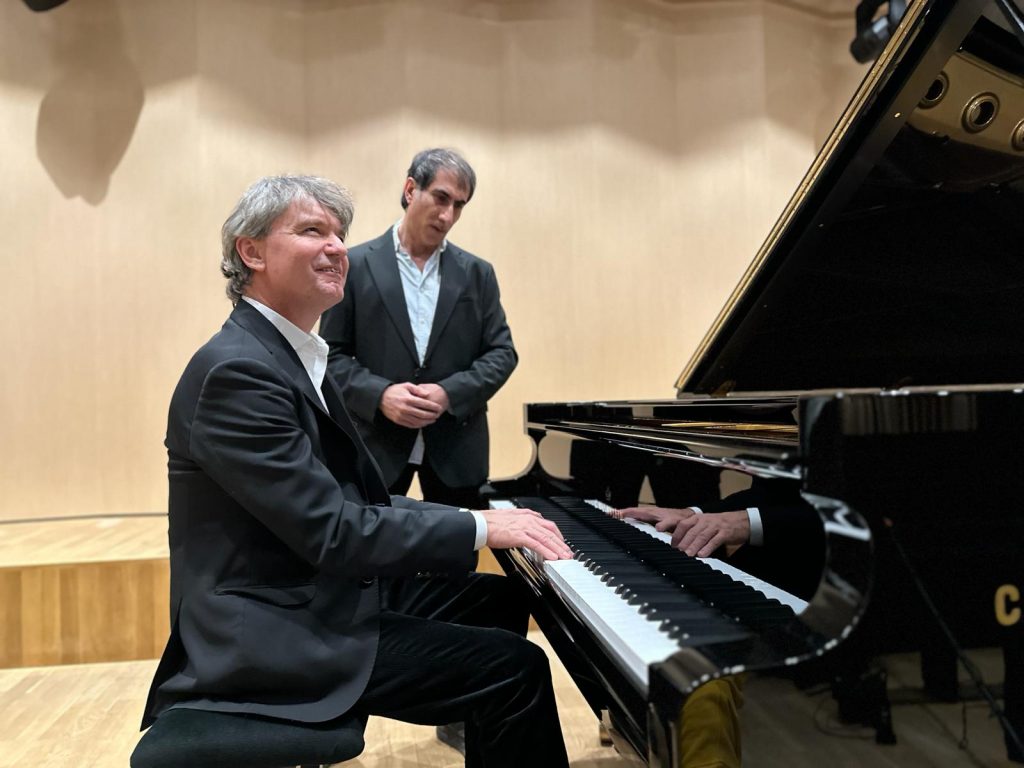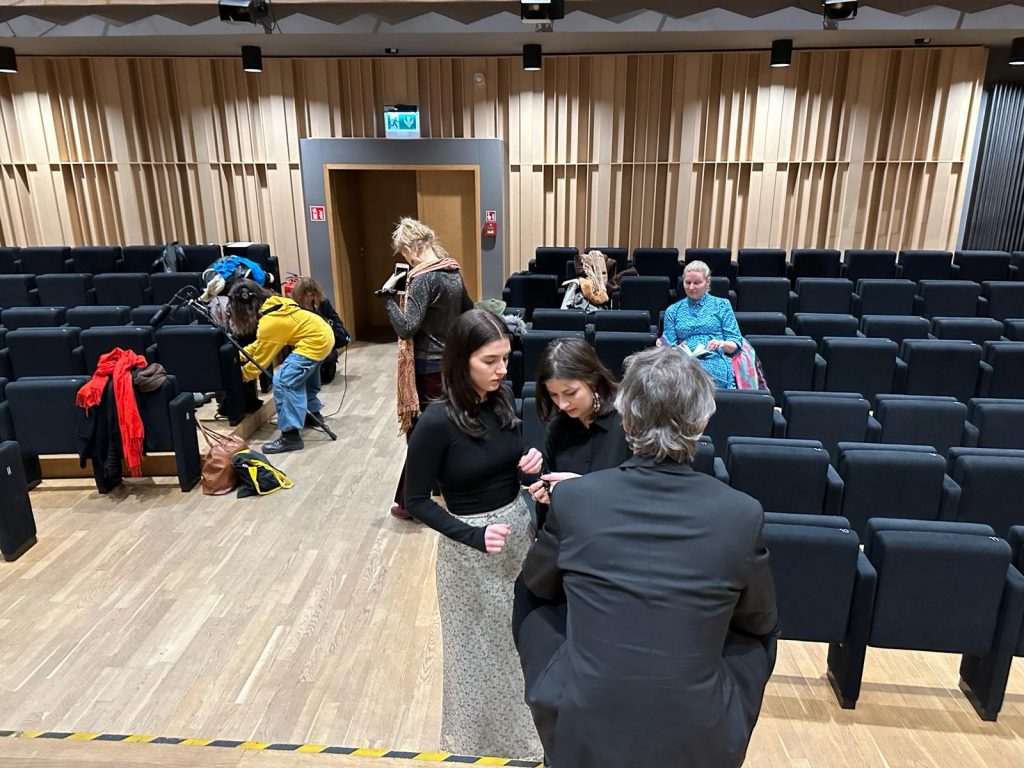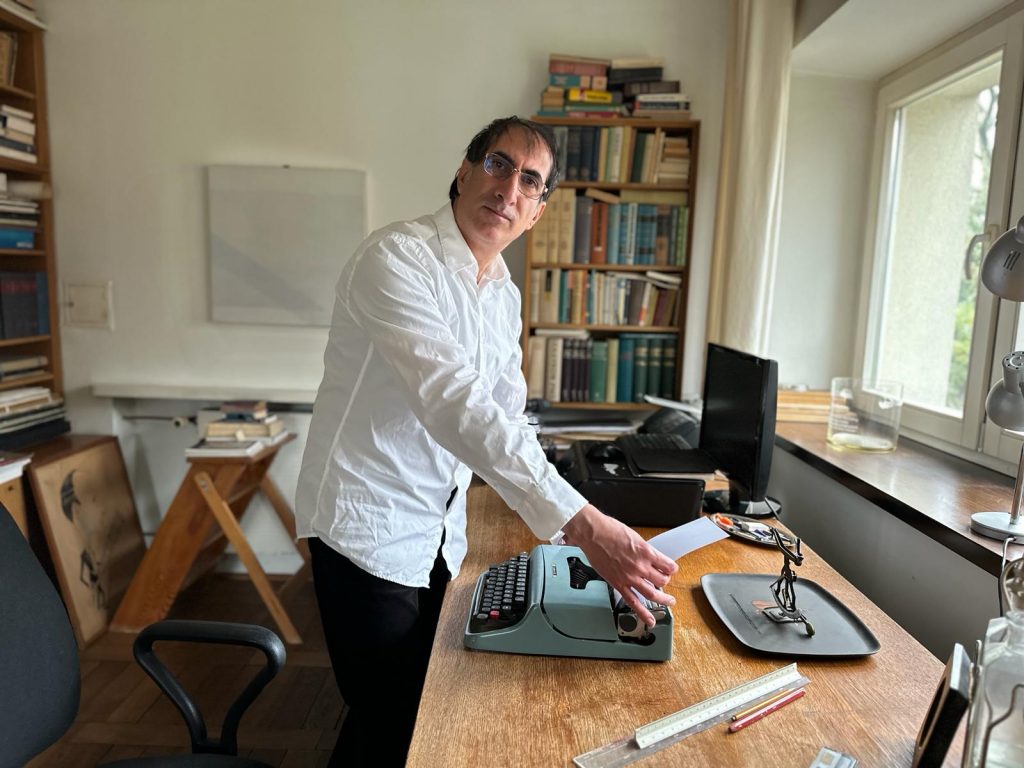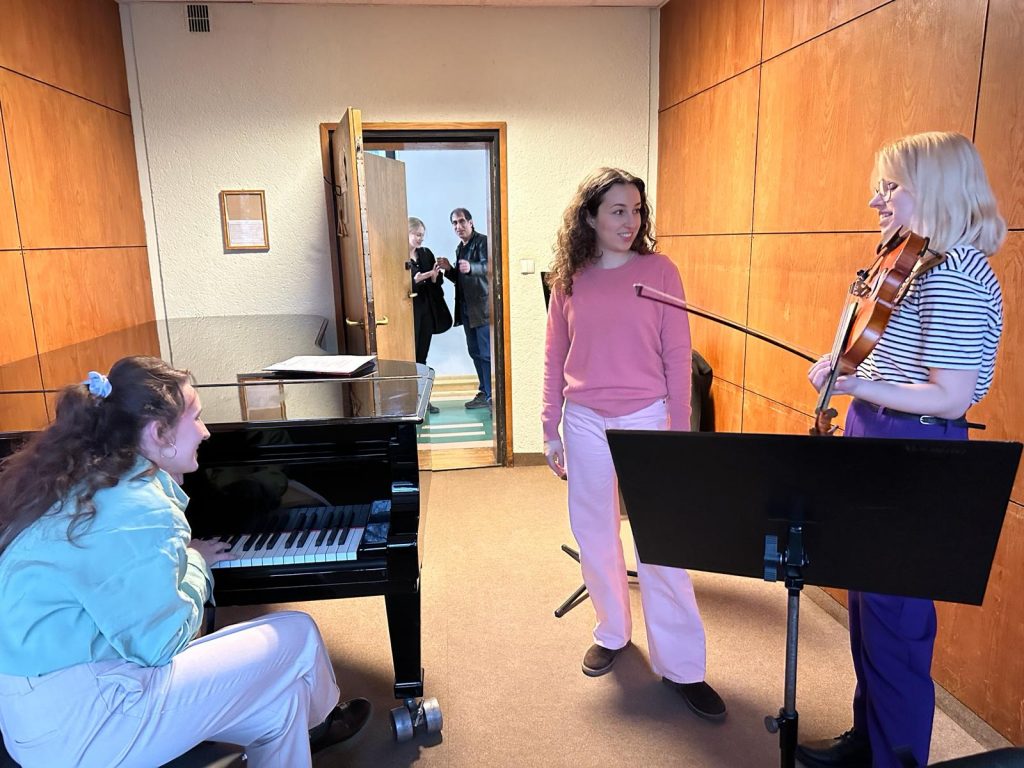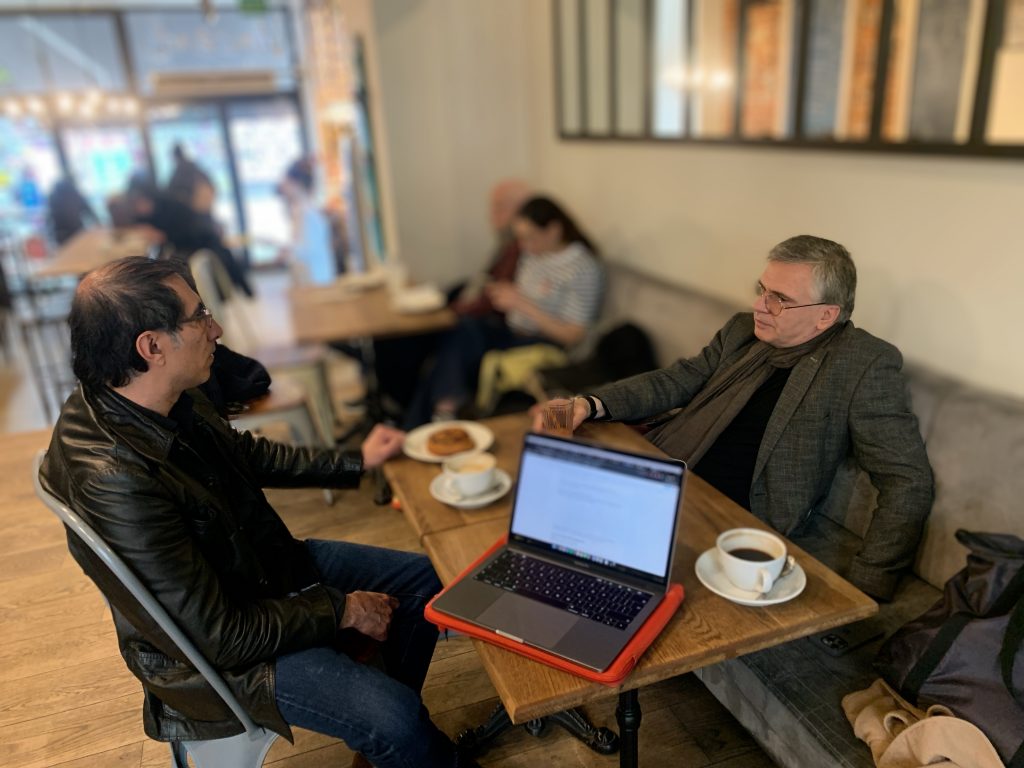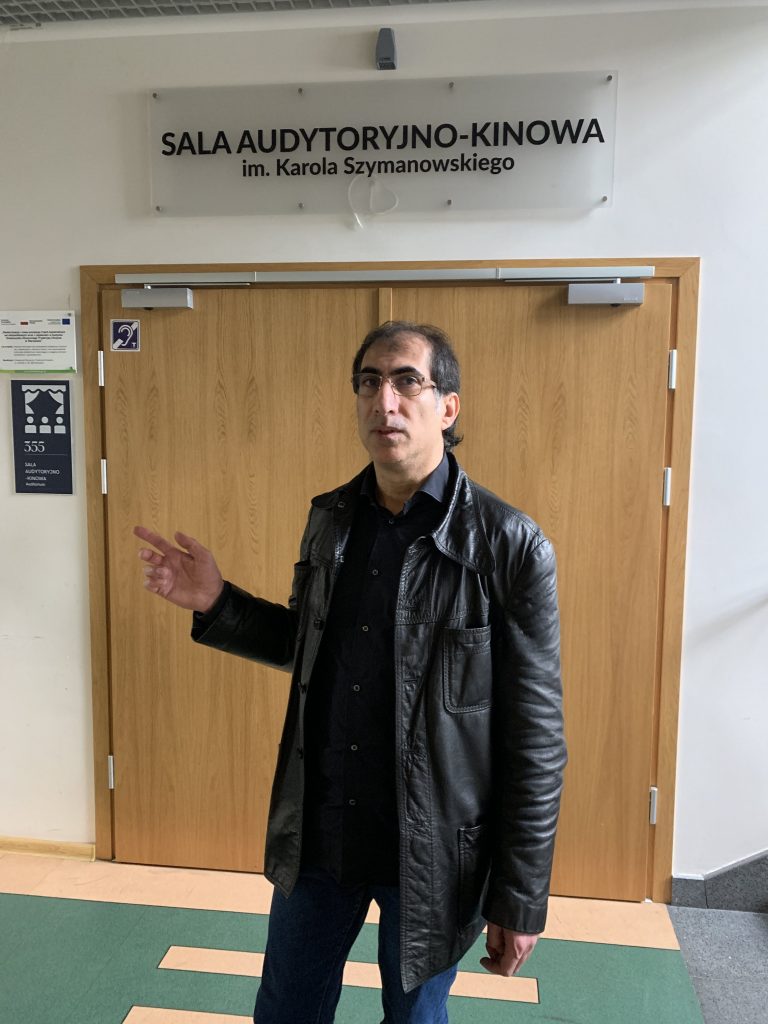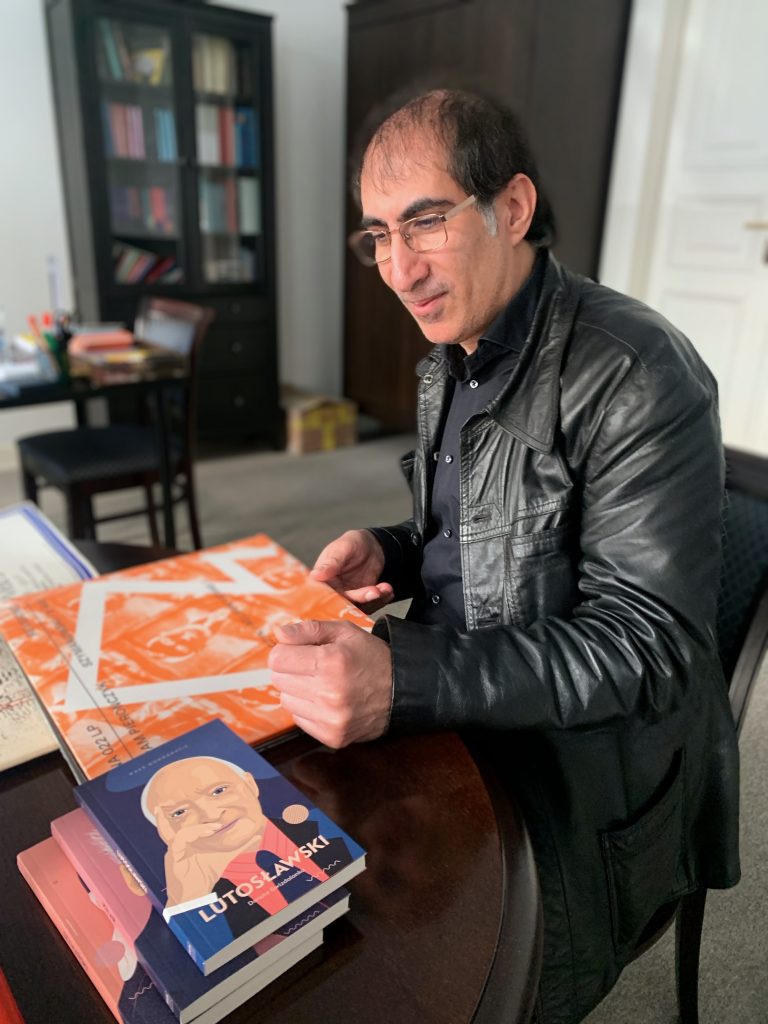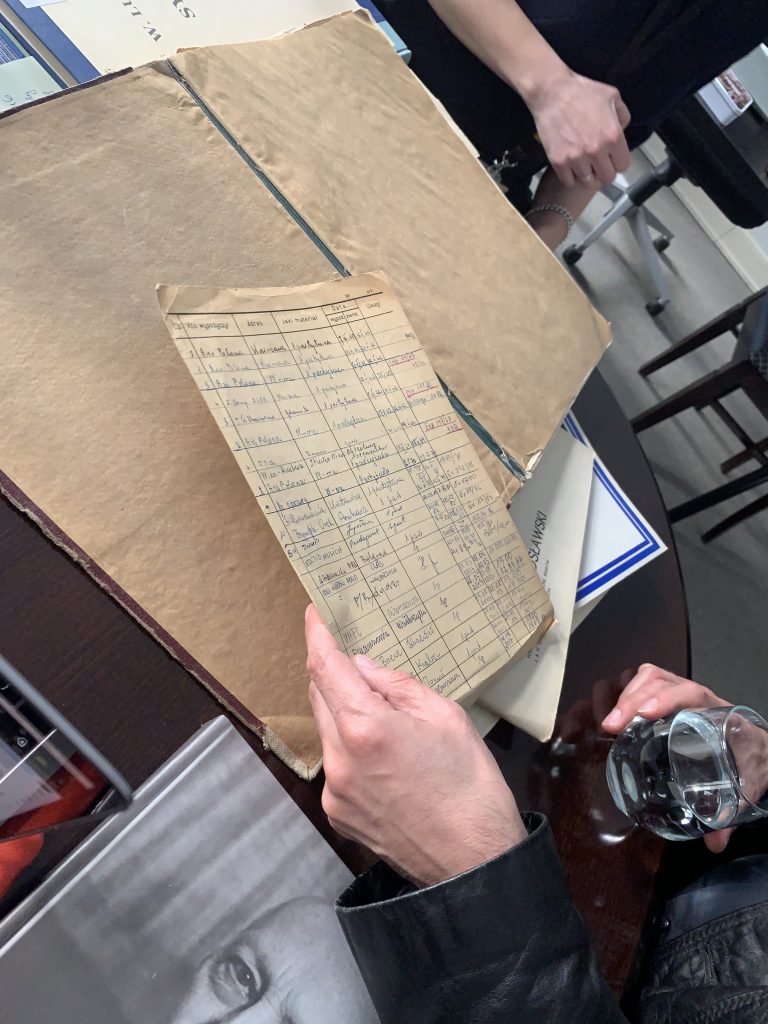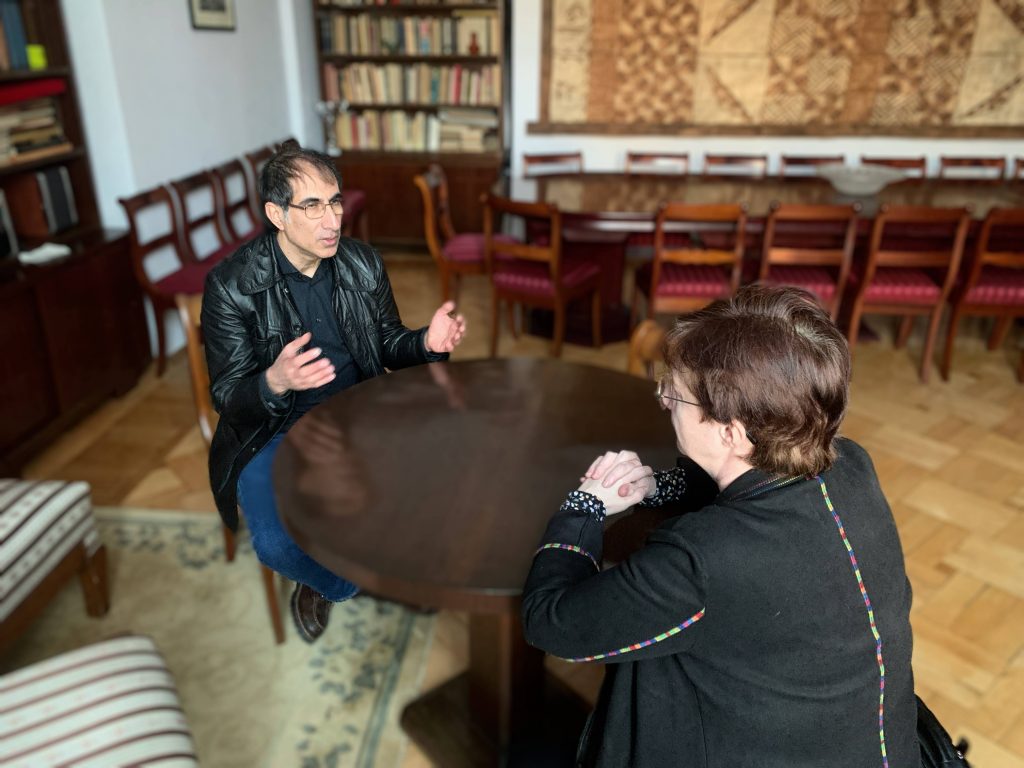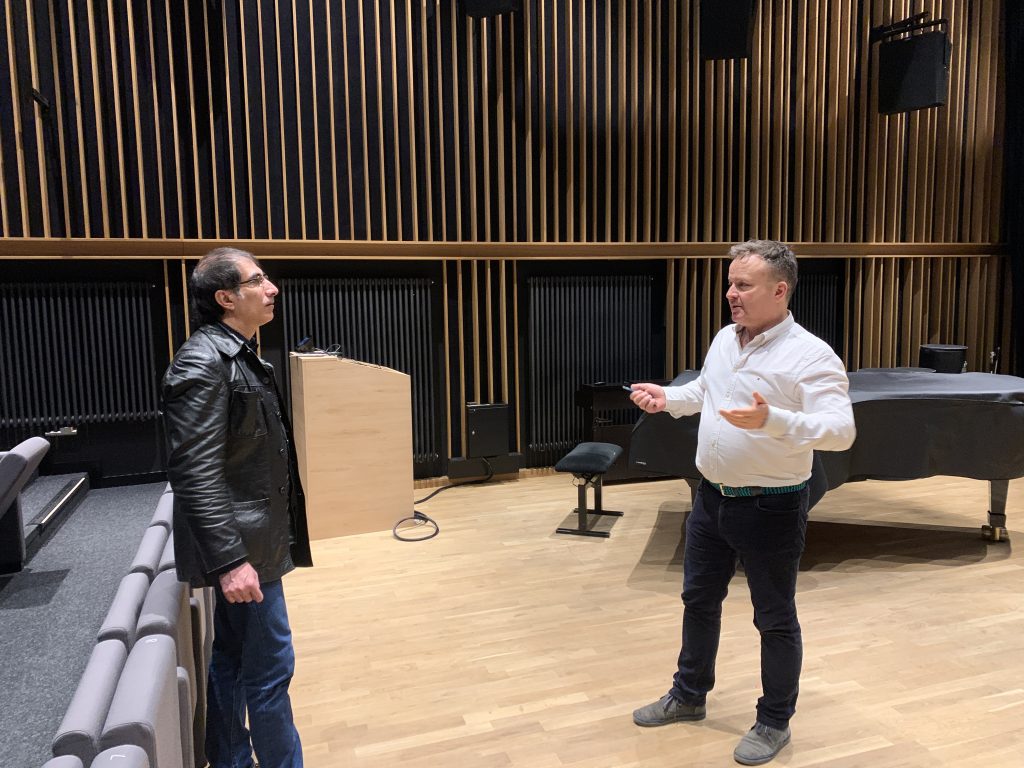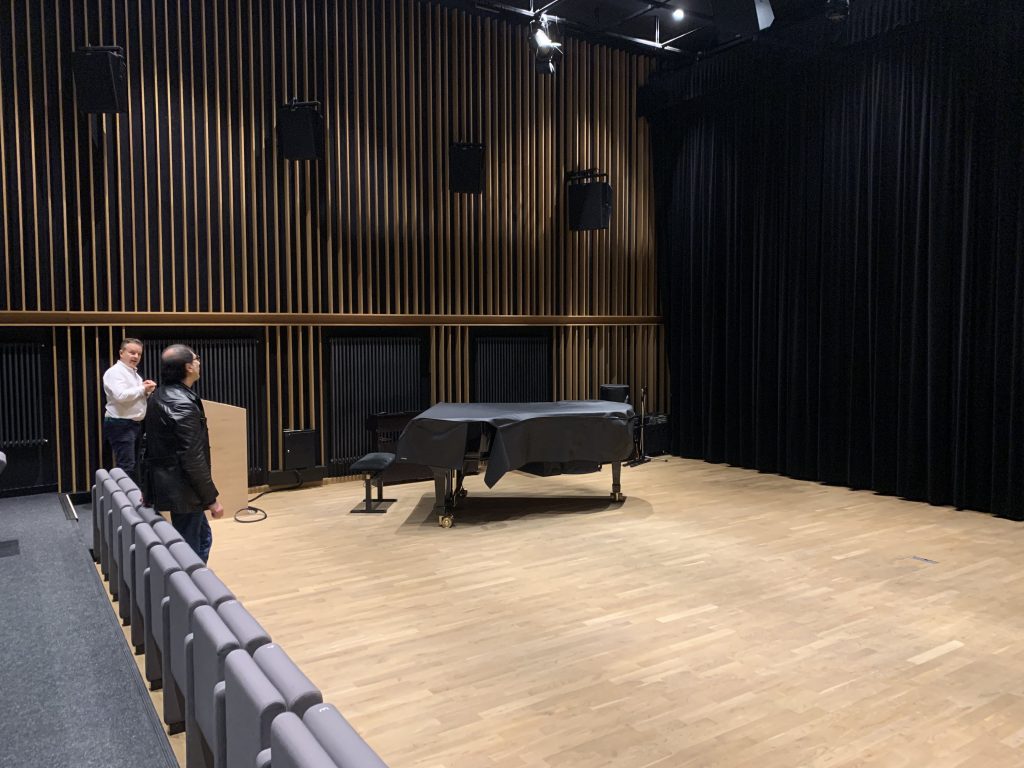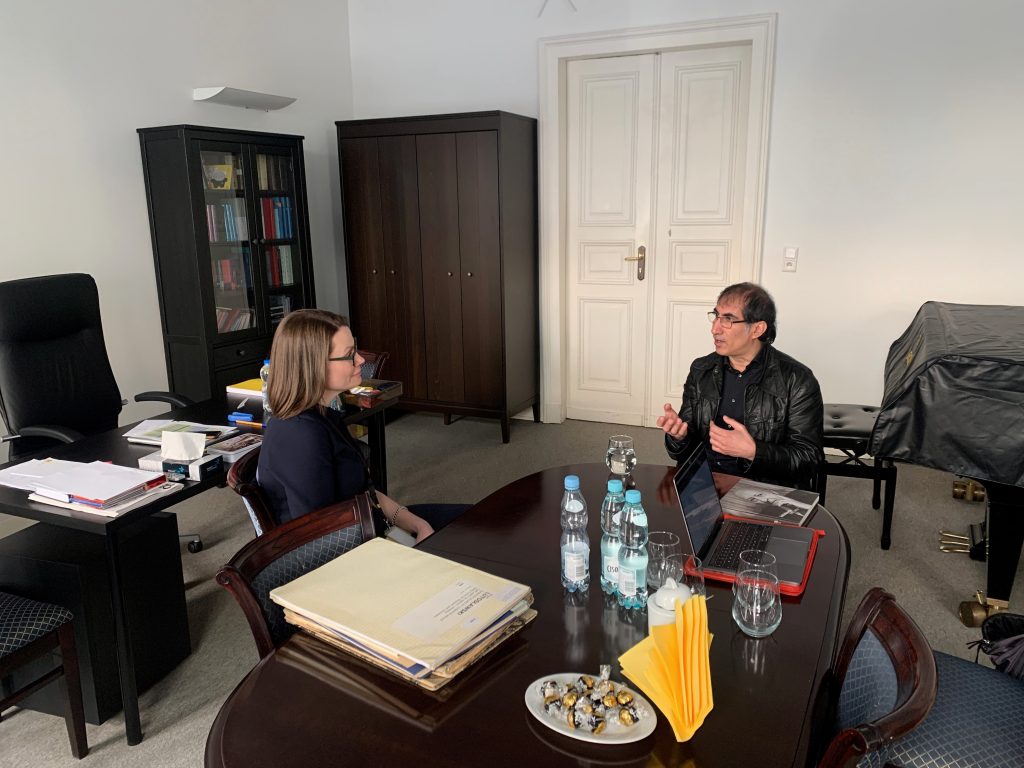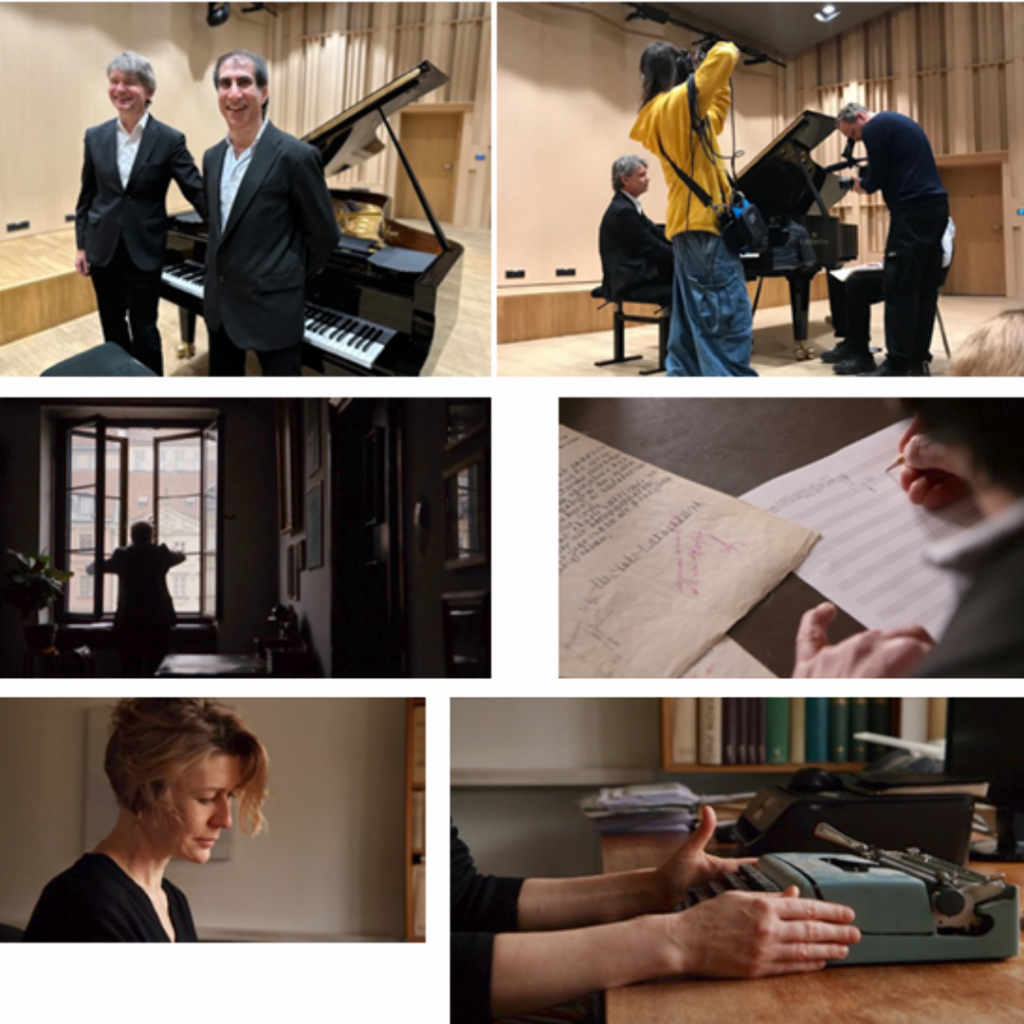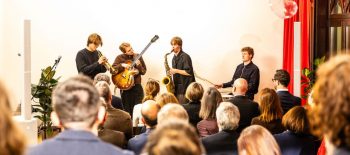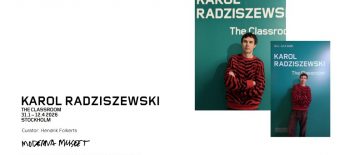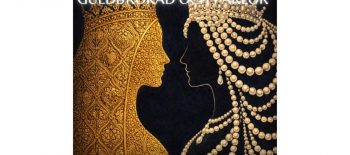Studieresa till Warszawa i Witold Lutosławskis fotspår 🗺
Syftet med resan var att samla in material till kortfilmen ”Letters to Lutosławski” om den polske kompositören Witold Lutosławskis liv och musik. Filmen görs av kompositören och regissören Mansoor Hosseini och filmaren Nicklas Karpaty. Produktionen har hittills fått stöd av orkestern Sinfonia Varsovia, Polska musikinformationscentret POLMIC, Föreningen svenska tonsättare (FST) och Konstnärsnämnden. Under den första studieresan i april 2023, som finansierades av svenska Konstnärsnämnden, spelade artisterna in några verk av Lutosławski i Sinfonia Varsovias tolkning, höll möten på POLMIC:s bibliotek och arkiv samt besökte Witold Lutosławskis hem. Under årets resa till Warszawa i mars 2024, anordnad i samarbete med Polska institutet, samlade de in material till filmens första trailer.
Mansoor Hosseinis sammanfattning och tankar kring studieresan:
“Monday, March 4th, we filmed at POLMIC, in a fantastically beautiful location room with a piano that perfectly suited the mood and that of the film time period we wanted to show. The staff, especially Jakub helped us row around, rearranging the room to function better as Lutosławski’s workplace. Then filmed the old town, Stare Miasto, which was beautiful and gave a nice picture of Warsaw. After that we went to Chopin University and rehearsed with the actors. We filmed scenes with Pawel Kowalski playing Lutosławski’s piano concerto (solo version). Two actors had dialogues, one of the few scenes in the film.
Tuesday, March 5th we went to Lutosławskis home where his son Marcin and his wife live. Their daughter dragged us in. We filmed musician/actor Kasia Bojaryn in the living room, the kitchen, the garden as well as Lutosławski’s study. It was an emotional scene, to see Lutosławskis authorizations, books etc. We also filmed the house from the outside. In the afternoon we were back at Chopin University. This one time in a rehearsal room where we went through the script and movement and the music. Sound engineer Dawid was there again. There were others in the scene with some dialogue. The cast had music questions like us solved quickly. We filmed the scene several times, with close ups on each person. Also extra dialogue recordings as backup sound. The next day Nicklas and I talked more about the material we filmed and where the weight should be, i.e. which scenes you shall show more of to the story must be sensible.
My interview days, research days in Warsaw took place from 13-17 March 2024. It was exciting, educational and important to talk to, interview the following experts to have an understanding about which movie clips and what tone we should aim for when we cut the film together Letters To Lutosławski.
POLMIC
The Polish Music Information Center has a library on the upper floor, with archived documents, letters and scores of miscellaneous composers. (…) The staff at the archive room were enthusiastic and helpful. We also met POLMIC head Dr Mieczysław Kominek. We discussed music rights as Lutosławski’s music will be heard in the movie.
UMFC
At the Chopin University of Music, we spoke with Michal Ostoja Ostaszewski who is a promoter and producer. He organises collaboration with artists outside the University. Michal showed us around the new cinema and concert venue, one of several at the school. We got to the chamber music hall where Kowalski played the piano solo as well as a rehearsal room where we shot a scene with four actors.
PMW Edition
The next visit was the publisher Polskie Wydawnictwo Muzyczne, where we were warmly welcomed by Agata Kwiecińska. She told me about the publisher, about Lutosławski’s contact with them, about how important his music is. She ranked the composer among those most important in Poland’s music history and mentioned how appreciated he was quite early in his career. She also emphasised that he became more famous in the 60s for the speech, especially his orchestral music which was his goal. We got to see the orchestra score and information about various crews, piano and vocals, concerto and more.
IMUW
I met Prof. Iwona Lindstedt as department head of the IMUW, Institute of Musicology, at the University of Warsaw. She is Lutosławski’s expert and teaches at the University, among others music history and analyses his music for his students. Prof. Lindstedt is passionate about Lutosławski’s life and its function in society considering Poland’s history in the time period. She also talked about Lutosławski’s relationship with politics and his vision as a composer, that he wanted to write ”serious” music but sometimes chose to create music for Lutoslawski Society.
On Friday March 15th I had a meeting with Andrzej Bauer from the Lutosławski Society. Bauer is also a cellist and professor at the Chopin College of Music. He explained that he met Lutosławski, received a scholarship from his association and played his cello concerto and other works for many years. Bauer also started a Cello Fest which is a competition and festival with concerts where ensembles play mainly Lutosławskis music. He mentioned folk music that Maestro wrote under a different name and told about his revolutionary system of notation.
Conductor Wojciech Michniewski
Michniewski is a well-known conductor who has worked with a large number of famous orchestral works and chamber music. He was friends with Lutosławski, was from time to time with him and discussed, had dinner, and worked together. In other words, he knew the composer pretty well. Hans described Lutosławski as a calm, polite and private person who preferred to talk about music. Orchestral music worked as his greatest interest. He also praised Lutosławski’s aleatoric system and how he wanted to achieve a notated and mastered improvisation through this. Sometimes there are no bar lines, which gives the musician freedom.
Pianist Pawel Kowalski
Already as a young musician, Kowalski received a prize and scholarship from Lutoslawski. He told me how important his meeting with Lutosławski was and playing the piano concerto for him became one large part of his development. He performed the Chopin concerto The music university’s concert hall, which is the floor below where Kowalski was later filmed. Then he played the solo piano version. At the meeting, Kowalski pointed to different pages and brought them together parallel to Chopin’s music.”
